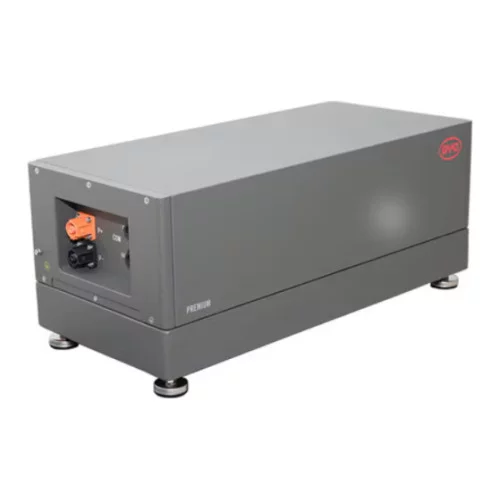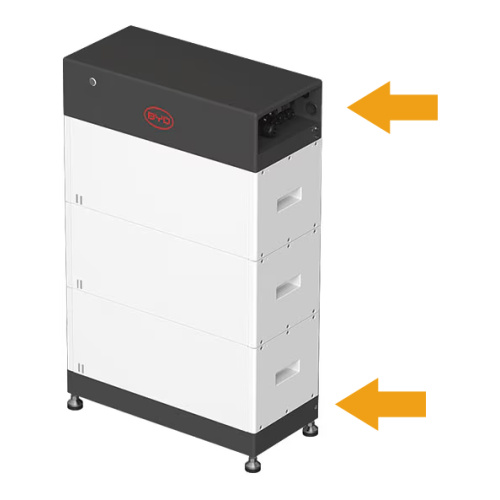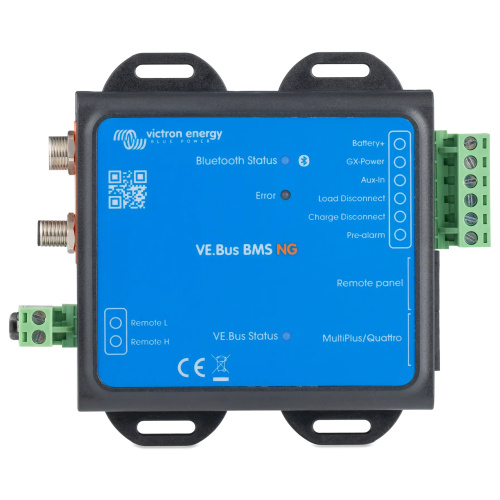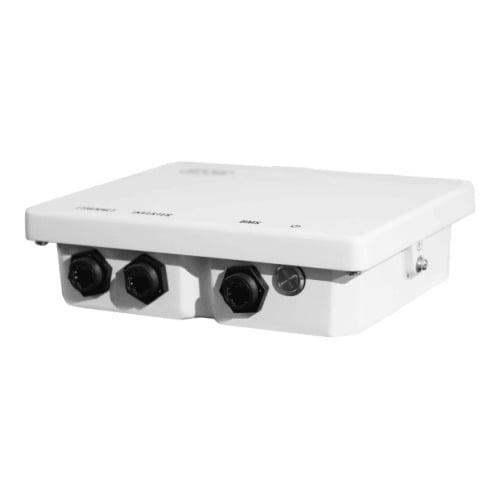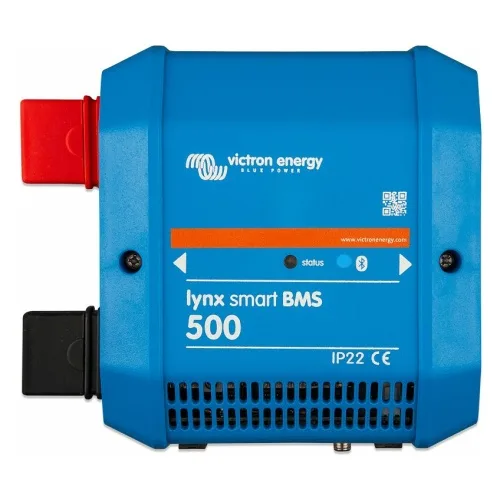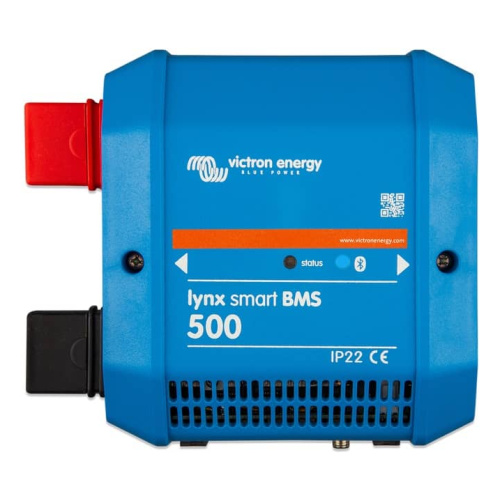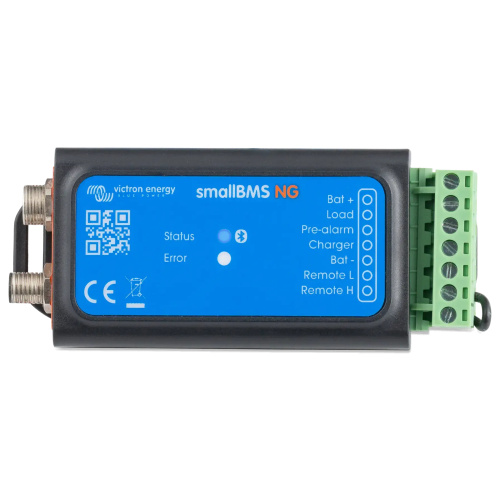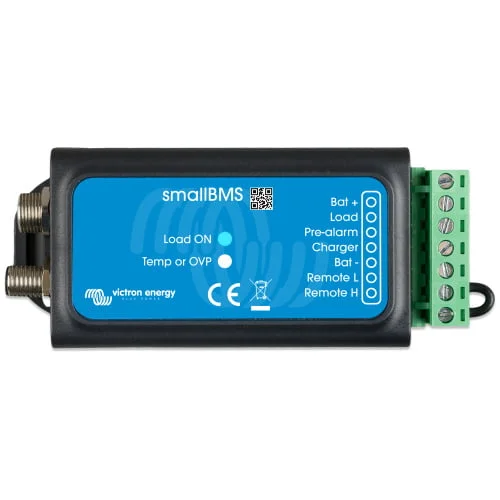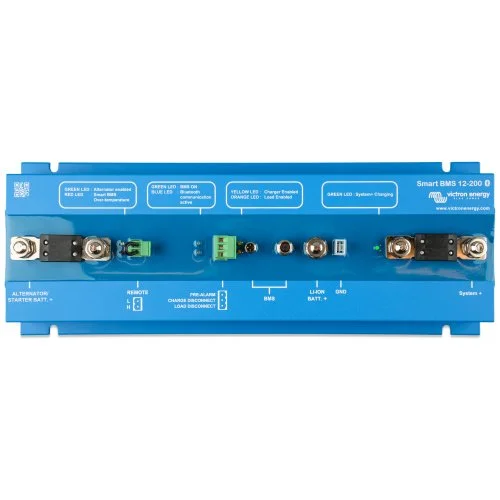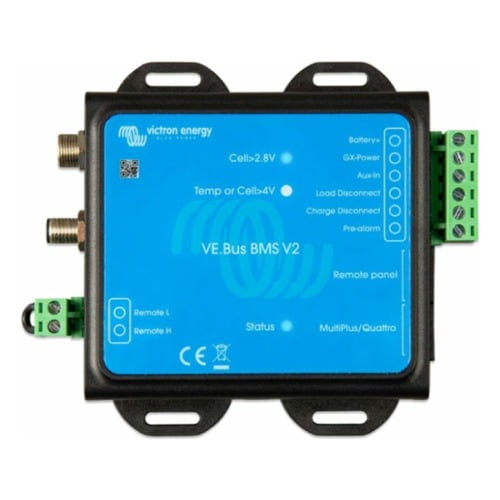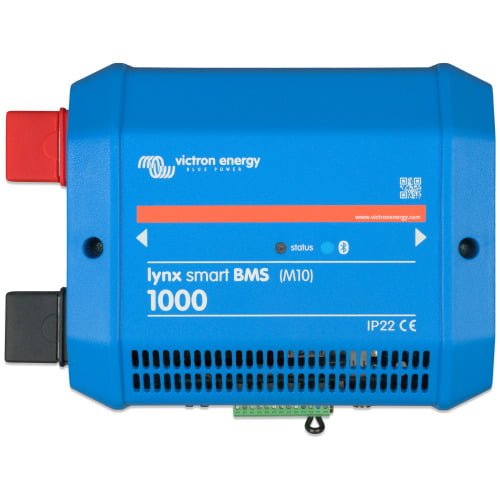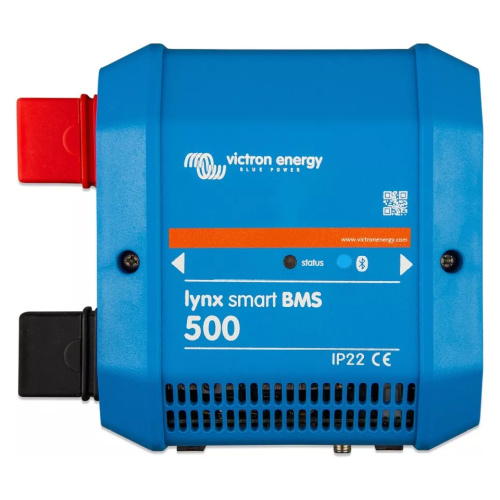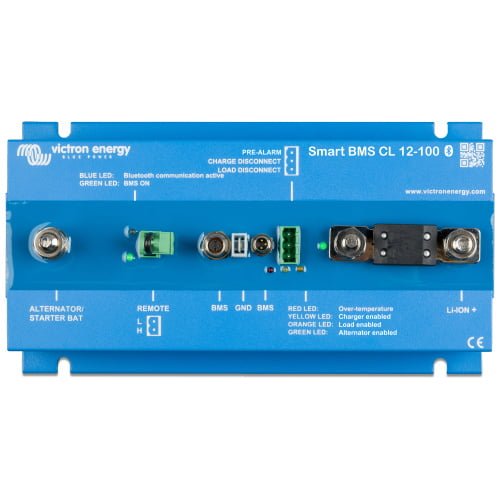- Free shipping to mainland Spain for orders over 300€.
BMS for lithium batteries
If you are looking for a BMS for lithium batteries you're in luck. We have a wide range of BMS for Victron Energy lithium batteries. Among the most common uses are BMS for 48V lithium batteries and BMS for 12V lithium batteries.
If you don't find what you are looking for, please write to us at [email protected]
"Lynx Smart BMS 500 NG (M10) Victron - LYN034160310" has been added to your basket. View basket
What is the BMS of a battery
It is an essential component in any lithium battery to manage its status, charging and discharging. A bms for lithium batteries guarantees safety and efficiency in energy storage.
More and more lithium batteries are being sold as they have a higher energy density than other solar batteries on the market. For efficient operation they need a bms battery, which is an essential component to ensure the safety and durability of any lithium battery.
In any installation with lithium batteries there are 3 components:
- Lithium battery housing or cabinet: to store our lithium battery bank (depending on the brand).
- Lithium-ion cells: they are composed of batteries or plates that are interconnected to achieve the voltage and amperage required in each case.
- BMS: Battery Management System, as its name suggests, is an essential component for the correct charging and discharging of lithium batteries.
Functions of a lithium battery bms
BMSs monitor the charge and discharge status of a battery and optimise its operation. The following list shows the functions of a bms system in a lithium battery:
- Optimises performance.
- Extends service life.
- Increases security.
- Detects and prevents failures.
- Manages energy control.
- Battery information management.
- Monitors battery status.
The main function of a lithium battery bms is to improve the utilisation rate of the battery, prevent the lithium battery from overcharging and over-discharging, monitor the status of the lithium battery and ultimately extend the life of the battery.
Bms for lithium batteries
We can consider the bms battery as a safety feature that prevents accidents when using lithium batteries. When a lithium battery is used incorrectly, smoke, sparks and even explosions can occur.
Lithium batteries are prone to overheating because of the cells that make them up; each cell has a different temperature and a different voltage window, which is why it is so important that it is charged safely. The bms battery takes care of this, it has sensors to individually regulate the temperature of each cell. This prevents the capacity of the lithium battery from decreasing and extends the life of the battery.
The bms system does not have to be replaced when the battery is replaced. If the battery has lost autonomy but still works, in principle the BMS is healthy and does not need to be replaced. Replacing the lithium cell pack would be sufficient. But if the battery has suddenly stopped working, it may be that the cells are completely depleted and are no longer receiving charges, or that there is a problem with the lithium bms battery.
If the battery is less than 2 years old and has suddenly stopped working, it is possibly due to a failure of the BMS. Considering that the life of the BMS is not parallel to the life of the battery, it would be advisable to replace the BMS battery at the same time as the lithium-ion batteries are replaced.
Victron BMS in photovoltaic installations
Lithium batteries have adapted to the needs of this market. They are one of the most in-demand options, which is why the lithium battery bms plays such an important role.
The bms is in charge of monitoring the individual cells that contain the battery pack. In addition, it calculates the incoming and outgoing current without damaging these storage devices; they also process and store the information to solve any problems that may occur.
How a bms works
The BMS is primarily responsible for stopping the charging process of the lithium battery when the battery voltage exceeds 4.2 V or the battery temperature exceeds 50 °C. The Victron bms will prevent overcharging of the lithium battery and increase its lifetime.
Benefits of a Victron bms
- Safety: One of the main functions of the use of a bms battery is the protection thanks to the control of overloads and overheating.
- Monitoring: The load indicator accesses real-time data to prevent overheating or discharging.
- One of the characteristics of lithium batteries is that they are "maintenance-free". This is because they can be switched off if the voltage is low, thus reducing costs considerably.
- Protection against extreme temperatures with the use of a bms for lithium batteries. It is important to note that extreme temperatures affect the life of lithium batteries and their performance, especially heat is more damaging than cold.
- Voltage balance between cells. In lithium batteries, each cell has a different voltage window to prevent the rest from being overcharged.

